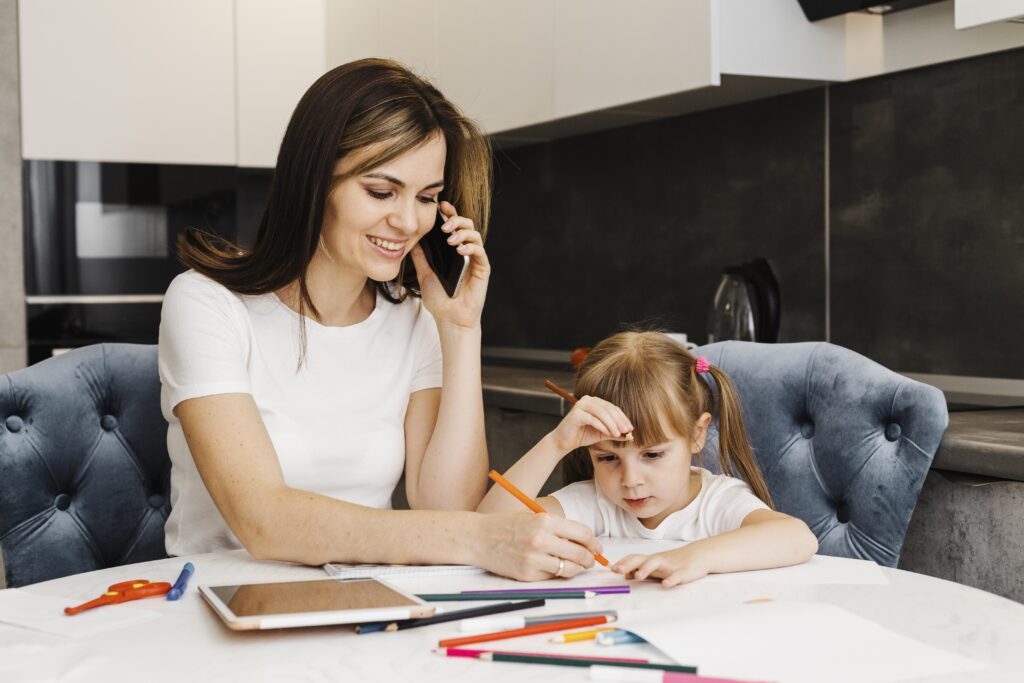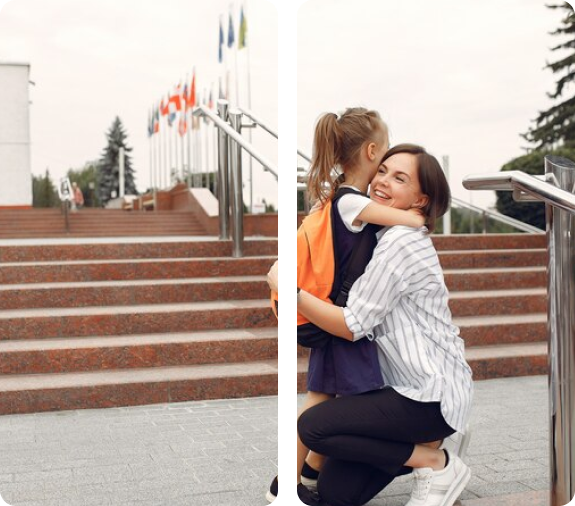Au Pair
An au pair in Germany is typically a young person from another country who lives with a German host family for a cultural exchange experience. The au pair helps with childcare and light housework in exchange for room, board, and a monthly stipend.


What is an Au Pair?
An au pair is a young adult, usually under 25, who lives with a German family and provides childcare in exchange for free room and board, plus a small allowance.
Who Can Be an Au Pair in Germany?
Young people from around the world can become au pairs in Germany to learn German and prepare for future studies or careers. You can apply after completing school (if you’re at least 18), during or after college.
What are the Responsibilities of an Au Pair in Germany?
The primary responsibility of an au pair is to care for children. This typically involves supervising playtime, taking children to and from kindergarten, and assisting with light housework related to childcare. While you may be asked to help with household chores, your main focus should be on childcare.

How Long Does an Au Pair Assignment Last?
Young people from around the world can become au pairs in Germany to learn German and prepare for future studies or careers. You can apply after completing school (if you’re at least 18), during or after college.
How Do Au Pairs Live with Host Families?
Au pairs are considered temporary family members rather than employees. They receive a contract, a small allowance, and their own room for privacy. The mediating agency and German laws protect au pairs’ rights. Host families who are interested in hosting an au pair and can afford it typically offer attractive living arrangements. While au pairs may not always live in big cities, they can expect comfortable accommodations.

How Much Can You Earn as an Au Pair?
Au pairs receive free food, accommodation, insurance, and a language course (up to €50 per month). Additionally, they earn €260 per month in pocket money.
The German Au Pair program officially sets the monthly salary at €280. Host families must contribute €840 per year (or €70 per month) towards the au pair’s language course. This may fully cover the course cost, but the au pair might need to pay the difference.
Working Hours
Au pairs work a maximum of 30 hours per week, including babysitting, and no more than 6 hours per day. They should have at least 4 evenings and 1.5 days off per week. Non-EU au pairs cannot hold other jobs while in Germany.
Time Off and Holidays
Au pairs in Germany are entitled to at least 1.5 days off per week and 4 evenings off, including one Sunday per month. For a one-year stay, they have four weeks of vacation. Shorter stays have two days off per working month.
Alternatives to Au Pair
If you want to live in Germany, consider starting an apprenticeship, studying, or working.

Au Pair Eligibility Checklist
- Citizenship : Any nationality is eligible.
- Visa : Not required for application. You can apply for a visa after receiving a contract.
- Age : Between 18 and 27 years old
- Language : Basic German language skills (A1 level). Non-EU applicants may need to demonstrate language skills during a visa interview.
Your Path to Becoming an Au Pair in Germany

Finding a Host Family
The next step is to find a suitable host family. You can use an au pair agency, online resources, or personal connections. Communicate with potential families to ensure compatibility.

Applying for a Visa
Non-EU citizens need a visa to enter Germany as au pairs. Apply at the German embassy or consulate in your home country. You'll need a passport, invitation letter, and health insurance.

Registering with Local Authorities
Within two weeks of arriving in Germany, register with the local authorities (Ausländerbehörde). This is mandatory for all residents. Bring your passport, visa, and rental agreement.

Attending a Language Course
As an au pair, you must take a German language course. Your host family will help you enrol. The course fee is €70 per month, partially covered by the host family. Travel costs are also covered.

Signing a Contract
Before starting your au pair duties, sign a contract with your host family. The contract should outline working hours, days off, and the monthly allowance. Read the contract carefully and ask questions if needed.

Requirements to get a visa in Germany
- Passport
- Au Pair contract
- Appointment and visa application form
- German certificate
- Motivation letter
- Invitation letter
- Health insurance
- Birth Certificate (Being 18 to 26 year old)
What If You're Unhappy as an Au Pair?
While being an au pair in Germany can be rewarding, challenges may arise. If you’re dissatisfied with your host family, Germany, or the childcare role, here are some options:
-
Communicate with Your Host Family
Openly discuss your concerns with your host family. A mediator, like your au pair agency, can help facilitate the conversation. Aim for a mutually beneficial solution. If unsuccessful, your agency can assist in finding a new family. -
Connect with Other Au Pairs
Sharing experiences and seeking advice from other au pairs can be helpful. Online forums and groups provide opportunities for connection. -
Prioritise Self-Care
Take time for yourself to engage in activities you enjoy. Germany offers plenty of outdoor and cultural opportunities for relaxation and enjoyment. -
Consider Changing Your Program
If childcare isn't the right fit, explore other options like language courses or study programs within Germany. -
Seek Professional Help
If you're struggling with mental health, seek professional help. Germany has excellent healthcare services, including therapists and counsellors who speak various languages. -
Return Home Country
If none of the above options work, consider returning to your home country. Consult your agency for guidance on ending your program early.
Options After Your Au Pair Program in Germany
Completing an au pair program in Germany offers valuable international experience, language learning, and cultural immersion. Here are some options for your next steps

Extend Your Stay
If you enjoy your time in Germany, consider extending your stay. Explore options like a job seeker visa (up to six months) or a student visa for language courses or study programs.

Travel Europe
Germany's central location makes it a great starting point for exploring Europe. Visit neighbouring countries like France, Italy, and Spain. Budget airlines offer affordable travel to destinations like Greece and Turkey.

Continue Your Education
Germany's excellent education system provides numerous opportunities. Consider language courses, study programs, dual study programs, vocational training, or apprenticeships.

Work in Germany
To work in Germany, you'll need a work visa. Secure a job offer from a German employer or meet qualifications in a high-demand field. Note that finding a job can be challenging without fluent German.

Volunteer in Germany
Give back to the community and gain valuable experience by volunteering. Choose from various opportunities like working with refugees, animals, or environmental organisations. Consider FSJ, FÖJ, or BFD programs for language improvement and social connections.

Return to Your Home Country
Use the skills and experiences gained in Germany to enhance your resume and job prospects. Stay connected with your host family and continue practising German.
